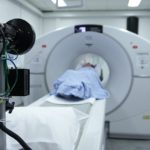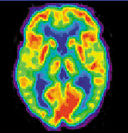NIDUS Blog
Virtual technologies for inpatient monitoring: A new inpatient team member?
Contributed by Nick Bott, Psy.D, from the Clinical Excellence Research Center at the Stanford University School of Medicine, Stanford, CA The Hospital Elder Life Program (HELP) is a well-established multi-domain nonpharmacological intervention for the prevention of delirium in hospitalized older people.1 Strengths of HELP include its focus on early intervention for delirium prevention, the targeted […]
Systematic Review of Delirium Severity Measurement
Contributed by Heidi Lindroth PhD, RN, Postdoctoral Fellow at Indiana University School of Nursing and Indiana University School of Medicine, Center for Aging Research Upwards of 4 million hospitalized adults experience delirium, a form of acute brain failure each year.1-3 The measurement of delirium severity, defined as the intensity of a delirious episode, is growing […]
Case Study: Delirium in an Older, Hospitalized Woman
This post was contributed by Deborah D’Avolio, Ph.D., BC-ACNP, ANP, Associate Professor, Florida Atlantic University The following case study illustrates an example of how delirium can occur in a hospitalized older adult. Mrs. R is a 68-year-old, Italian speaking woman. She was admitted to the oncology unit for ongoing treatment of advanced uterine cancer. Mrs. R lives […]
Delirium Research Profile: Charles Adrian Austin, MD, MSCR
Interview by Claire Horne, Communications Specialist, UNC Center for Aging and Health. Adrian Austin is a pulmonary critical care physician, geriatrician, and delirium researcher at University of North Carolina-Chapel Hill. He leads the UNC-CH working group of investigators (“I-DUNC”) for better delirium assessment and education. Adrian currently has two delirium-related pilot studies underway at UNC: […]
2018 American Delirium Society Conference
Contributed by Heidi Lindroth, BSN, RN, PhD Candidate, School of Nursing, Program Assistant, School of Medicine and Public Health, Department of Anesthesiology at The University of Wisconsin-Madison The American Delirium Society (ADS) annual conference was held in June 2018 to share the latest advancements in delirium science. A wide variety of topics from delirium training […]
MRI and Delirium: An Interview with Dr. Michele Cavallari
Contributed by Olga Boukrina, PhD, Research Scientist, Stroke Rehabilitation Research at The Kessler Foundation Magnetic Resonance Imaging (MRI) offers an objective and quantitative measurement of brain health. The progress in MR imaging has made it possible to not only accurately measure brain volume, but also to assess the integrity of white matter connections in the […]
Studying the Delirious Brain: Neuroimaging
Contributed by Madeline D’Aquila, BS, Clinical Research Associate II & Annie Racine, PhD, MPA, both of the Institute for Aging Research, Harvard Medical School, Boston, MA. Although successful programs¹ to prevent delirium have been developed and implemented, advances in new prevention or treatment approaches have been stymied by a poor understanding of delirium pathophysiology. Neuroimaging […]
Patient Family Perspective on the Delirium Experience
Contributed by Namrata Patil, MD MPH of Brigham & Women’s Hospital and Faculty at Harvard Medical School, Boston. “Doctor, is he still like that? If he is still the same I am not coming in….,” her voice cracks as she breaks into sobs on the other side of the phone. My patient’s wife does […]
Tags
Blog Topics
- Announcements & News (121)
- Delirium Research (82)
- AD/ADRD (10)
- Investigator of the Month & Spotlights (43)
- NIDUS Resources (8)
Citing a published NIDUS blog post on your CV
When citing a NIDUS blog post on your CV, list it in a section entitled ‘Other Non-Peer Reviewed Scholarship’. For the actual citation, list your name, blog title, organization (NIDUS), and the link to Blog. At the end, add ‘invited blog’ in brackets. This is the format suggested on the Harvard Med School CV template.
Example:
Sam Jones, My Delirium Blog Post, NIDUS, www.deliriumnetwork/my-delirium-blog-post.org (invited blog)







